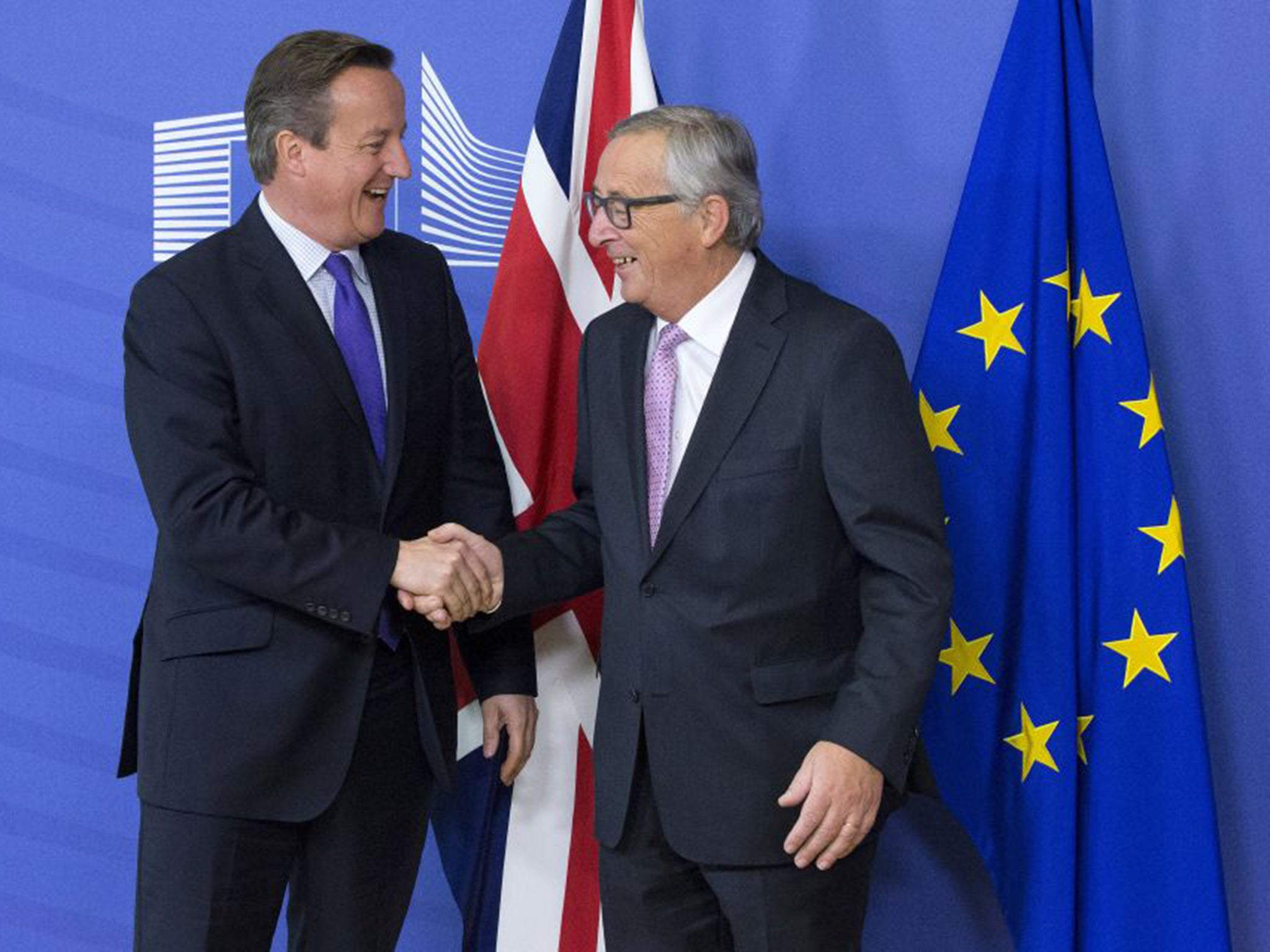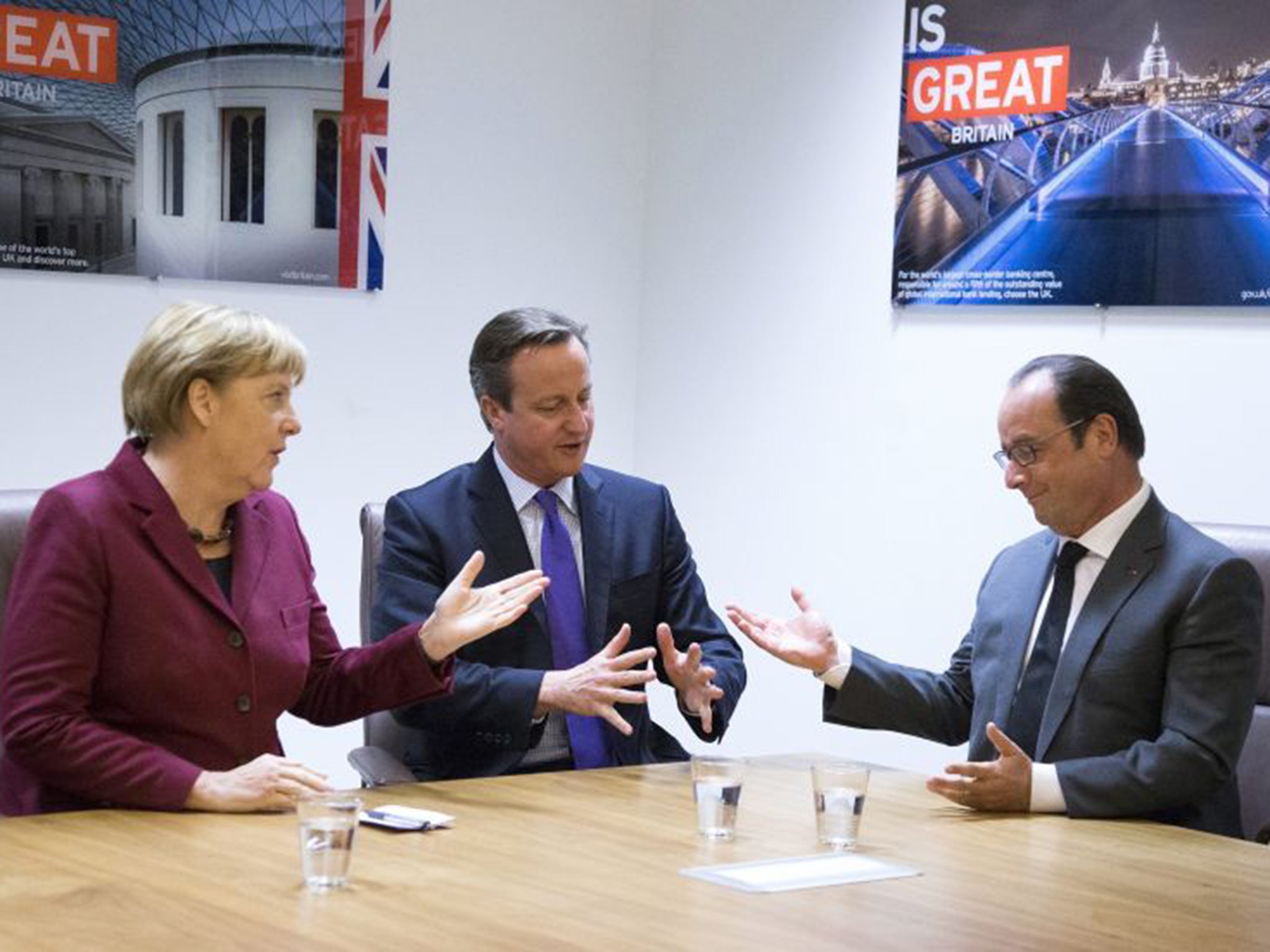EU referendum: David Cameron pledges to reveal renegotiation demands by November
EU leaders fear that if he cannot nail them down, the timetable will slip

David Cameron has pledged to reveal his wishlist of EU renegotiation demands by early November, amid growing pressure from fellow leaders over his elusive plans.
Speaking in Brussels at an EU summit, Mr Cameron said he would set out detailed proposals for reform which he claims are needed to secure support for Britain’s continued EU membership.
The Prime Minister spoke amid frustration from EU partners over his inability to articulate his requests. He promised to “quicken the pace” of negotiations in the run-up to the next EU summit on December 17-18, where Britain’s demands are expected to top the agenda. “I am confident we can get a good deal for Britain, fix those things that need to be fixed,” he said after a lunch with European Commission President Jean-Claude Juncker.
Officials revealed that the demands would be initially set out in a confidential letter to EU Council President Donald Tusk, before being shared with MPs and made public.

Mr Cameron’s pledge to hold a referendum on EU membership by the end of 2017 assumes that he will have succeeded in his renegotiation by the time of the vote. Yet EU leaders have yet to hear concrete suggestions beyond vague ideas about protecting the rights of non-euro members like the UK, and limiting social benefits for migrants.
While EU leaders say they are ready to accommodate Mr Cameron if his demands are reasonable, they fear that if he cannot nail them down, the timetable will slip.
The renegotiation did not feature in Mr Cameron’s trilateral meeting before the summit with Germany’s Angela Merkel and France’s François Hollande, where they compared notes on Syria and Ukraine.
Speaking to the Bundestag earlier on 15 October, Mrs Merkel said Germany would work constructively with the British government, but it was up to the UK to “clarify the substance of what it is envisaging” in the coming weeks. “But it also goes without saying that there are things that are non-negotiable,” she added.
European Parliament President Martin Schulz also urged Mr Cameron to spell out his demands. “Above all, we need clarity on what we will be discussing over the next few months,” he said, adding he was open to new ideas for improving the EU. “Nobody can doubt that a more democratic, more effective and more transparent Union, as well as deepening the single market by safeguarding our social model is a common goal,” he said.
Belgian Prime Minister Charles Michel added to the chorus of frustration over Mr Cameron’s delays. “We asked the PM Cameron months ago what he wants exactly. To have a negotiation, we need to know. I hope to get such information this evening.”
British officials began “technical” talks with the EU institutions in June. Mr Cameron has only identified four areas where he wants change. These are: an opt-out from the EU’s treaty commitment towards “ever-closer union” and greater powers for national parliaments; more economic competitiveness through free trade and open markets; protection for countries that are not in the euro; and welfare curbs for migrants workers.
Join our commenting forum
Join thought-provoking conversations, follow other Independent readers and see their replies
Comments
Bookmark popover
Removed from bookmarks